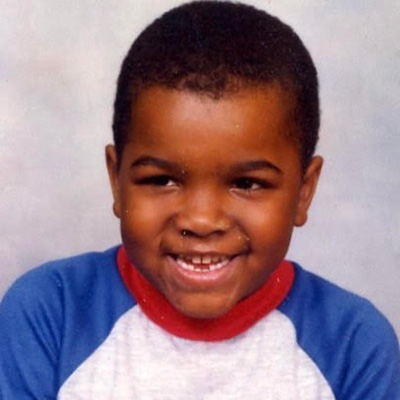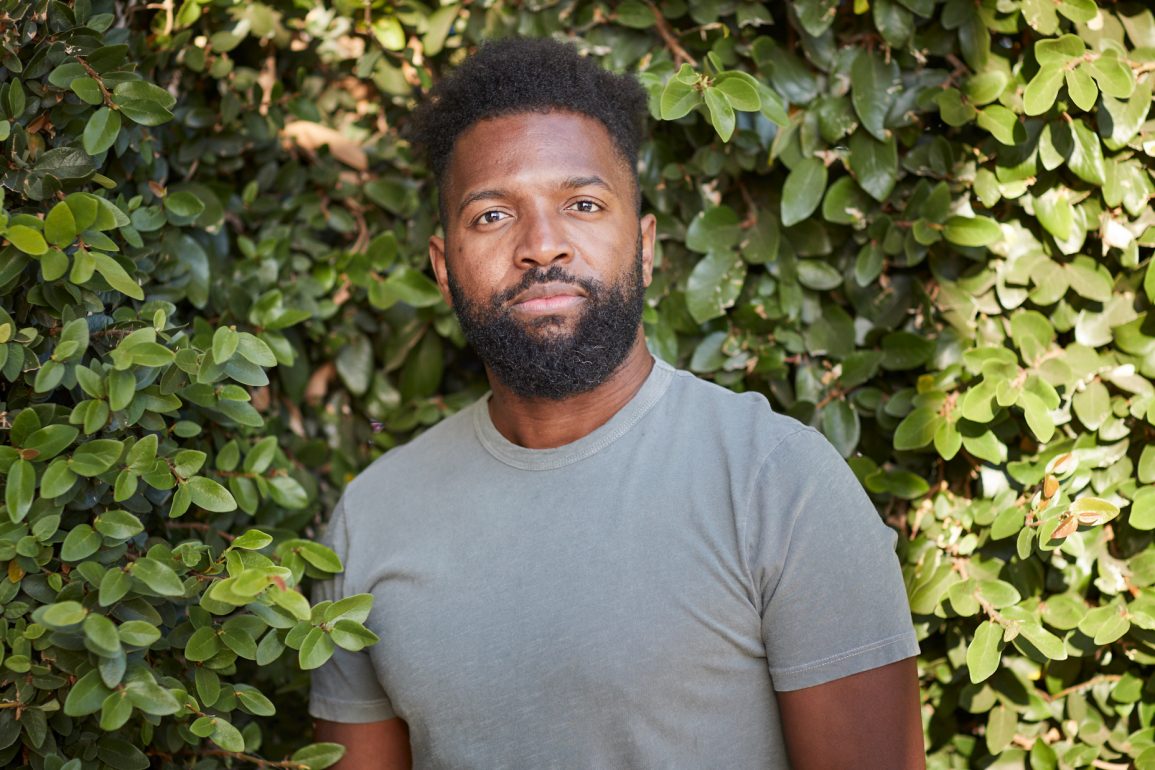Just as Early Learning Nation showcases the ways families, researchers and grassroots nonprofits and organizations are building an early learning nation—one community at a time—our Community Cultivators series highlights how innovators across all sectors build and sustain global communities from the ground up. We hope the series inspires your own early childhood work.
In the episode of Baratunde Thurston’s How to Citizen podcast featuring Xiaowei Wang, the guest reads the host’s tarot cards. Flipping over the Knight of Swords, they (Wang prefers they/them pronouns) detect “someone who just has this energy that’s like, ‘Oh, there’s a problem? Let’s do something about it! How can we fix this immediately?’”
👉 Blockchain Chickens and Empathetic Tech Workers
“This is so me,” Thurston responds to Wang, an author and technology entrepreneur. “I love to fix things. I literally fixed computers to help pay for college, and I’m always jumping to solutions in the face of almost any problem, even when the people around me don’t want me to come up with a solution.”
How to Citizen is all about how to fix democracy, something that many Americans feel is deeply if not permanently broken. Early Learning Nation magazine interviewed Thurston, who also hosts America Outdoors on PBS, and gained insight into how he thinks about interpersonal and global issues alike. Here’s what we learned:
Humor is a tool. Thurston started his career with The Onion and The Daily Show with Trevor Noah, as well as performing standup. “In comedy,” he says, “There’s this language of punching up and punching down—which, if you really examine it, is very violent. Why is anybody getting punched? Maybe it could be tickling up or tickling down.”
He finds a range of purposes for different kinds of comedy. When it comes to children, learning to make fun of yourself is an important developmental stage that comes later or never for some people. An inside joke, or comedy within a trusted circle, is another. When in doubt about what to make fun of, Thurston recommends animals, a topic that allows the imagination to run wild. “There are so many ways to explore the what-ifs,” he says, “and you can train young people to flex that muscle, practicing it on themselves. Mash-ups and remixes are natural fodder. What would happen if you drank a banana?”
Change requires risk. In the chapter of Thurston’s 2012 book How to Be Black called “How to Be the Angry Negro,” Thurston addresses the reader:
You are compelled to say what others won’t. They remain quiet, not because they doubt the truth of their perceptions but because they lack the courage to risk being ostracized…. Rage is your cape. Self-confidence is your mask. Truth is your sword.
While Thurston’s humor rarely comes across as out-and-out angry, there is often an edge so sharp you don’t immediately feel the laceration. “Comedy challenges established narratives and surprises us,” he says. “In surprise, in challenge, there is risk, and risk doesn’t always pay off positively—whether it’s an investment risk or a career risk or even a food risk.”
The riskiness of stand-up comedy isn’t for everyone, but Thurston sees a unique thrill in telling jokes to strangers, saying, “You try to emotionally connect with them so deeply that you trigger an involuntary physiological response known as laughter. It’s like one of the most confident things a person without confidence could do.”
Nature helps us heal from history. Thurston credits his mother for nurturing his love of the outdoors. “Whoever said Black folk don’t go camping forgot to tell Arnita Thurston,” he writes in How to Be Black. His enthusiasm for America and the outdoors is on full display in America Outdoors.
“I remember being wrapped up like a burrito in a blanket very early morning to go with my dad to a construction site where he was working, and it was dark. I remember being carried out from the house down the stairs into a pickup truck and thinking, ‘This is the coolest thing ever.’ (I didn’t know what a burrito was at the time. That’s a future me word imposed on the past.) But yeah, that being carried, the coldness of the air, the massiveness of the pickup truck and the darkness of the sky. It’s not what I thought of as morning. It felt like the middle of the night, but it was probably just before sunrise. To my little brain, it felt like nighttime. Now, I love burritos.”
Asked which parts of the country have surprised him most, he seizes upon the terrain of Arkansas as well as certain outdoor recreational pursuits. “Ultra-marathons, for example, are just more marathon than a marathon,” he laughs, “and that’s already too much for me. Without being conscripted into it, people are signing up to run 100 miles!”
He also mentions the rich and vibrant indigenous culture. “We read a lot about Native Americans in a historical context,” he says, “but they’re still here, and they’re not all the same, with a range of ecologies and ways of living.”
Another surprise: sharks. “They’re not out to get us. They’ve been shamed in the media. The deeper surprise is how often they’re right next to us and we don’t even know it.”
Finally, he notes his surprise at how emotional the show is for him, in terms of people’s struggles individually, as well as our collective national struggles with our history and how the outdoors has played a part in the struggle, and also in the healing from it.
One episode uses brain science to explore the power of nature to bring us back into equilibrium. “For his experiment,” he recalls, “they got me really riled up and then had me walk in a park and measured my brain during the process. I not only recovered from the stress; I was in a better place than before the stress started, so I was higher than baseline. It was a supercharge, not just a recharge.”

Applying this insight to early educators, Thurston says, “Teachers are not only dealing with their littles, but with the bigs who created them. The parents can often be more challenging than the students. So, if you’ve got some parent all up in your business, have that parent-teacher conference while walking through a park. It’s a naturally soothing environment. Scientists are looking at how nature affects our ability to recover from stress and help us heal. The short answer is, spoiler alert, massively.
Invest in your relationship with yourself. Thurston’s podcast and his TV show both address the eternal, yet increasingly relevant, themes of how to get along with others and the planet around us, which both tie back to the same place. “Relationship with yourself is such an underappreciated concept,” he reflects. “We need to ask ourselves how we feel, not just what we think. We need to develop a vocabulary for our emotions as well as our physical feelings.”
The maxim You are what you eat, he says, also applies to what we take in through our eyes and ears. “The stories that we eat,” he explains, “tell us that we’re capable or incapable, that we’re smart or dumb, so it’s important to consume stories that remind us of our power.”
We all have power. Each episode of How to Citizen explores power dynamics in one way or another, and while some of the topics it covers are too complex for young listeners, he is so interested in how children develop ideas about power that educational spinoffs are a possibility. “Even a very small person can be sensitive to who’s got influence,” he says.“Even in this tiny body, I have the power of my attention. (Will I listen to the teacher or not?) The power of my smile, who will I give that to? The power of my presence, the power of gathering with other people, the power of sharing ideas and information, whether good or bad.”
He encourages adults to ask children where they have power. “They might answer, ‘I refused to eat the pasta last night. It made my mom really upset. I guess I have the power to make my mom upset.’ I think it’s really good for people to recognize that.”
From individual power, it’s a short jump to collective power. “You and your best friend are a unit,” he imagines explaining to a child. “When have you thought about you and your friend, not just yourself? When have you thought about you and this whole classroom or this whole school or your whole family? Have you ever done anything for we and not just for me?”
Power can arise from formally establishing systems in our communities, but there are other ways of practicing power together. “We are all very powerful,” he asserts. “We all have the ability to gain and lose power. It’s this ebbing and flowing thing, and it increases when we work with others.”

Mark Swartz
Mark Swartz writes about efforts to improve early care and education as well as developments in the U.S. care economy. He lives in Maryland.



